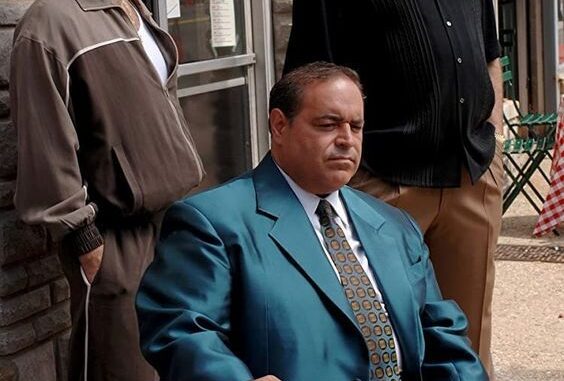
In the landscape of television, few shows have left an indelible mark quite like The Sopranos. Created by David Chase, this groundbreaking series not only captivated audiences but also transformed the way stories are told on TV. At the heart of this transformation is the complex character of Tony Soprano, played by the legendary James Gandolfini. So, what made Tony Soprano such a game-changer? Let’s dive into the depths of The Sopranos, exploring how David Chase’s creation not only reshaped the television narrative but also paved the way for the antihero archetype that continues to thrive today.
The Birth of a New Era in Television
David Chase: The Visionary Creator
David Chase, a seasoned writer and producer, had a vision for television that deviated from the conventional norms of the time. He wanted to create a show that explored the complexities of the human experience, blending drama, dark humor, and psychological depth. By doing so, he set the stage for what would become one of the most influential series in television history.
The Sopranos: A Revolutionary Concept
The Sopranos debuted on HBO in 1999, capturing audiences with its raw portrayal of mob life intertwined with family dynamics. It was a significant departure from the sitcoms and procedural dramas that dominated TV at the time. Chase’s willingness to explore morally ambiguous characters and realistic narratives opened the door for a new era of storytelling.
Tony Soprano: The Antihero Redefined
Complexity in Characterization
Tony Soprano is not your typical protagonist. He embodies the complexities of human nature—capable of kindness and brutality, love and manipulation. This multifaceted portrayal invited viewers to empathize with a character who is both a loving family man and a ruthless mob boss. Chase’s writing allowed audiences to see Tony’s vulnerabilities, leading to a deeper connection and understanding of his character.
Breaking Stereotypes
Prior to The Sopranos, characters in mob-related narratives were often one-dimensional villains. However, Tony Soprano broke that mold. He is flawed, relatable, and deeply human. By presenting an antihero who grapples with anxiety, depression, and existential dilemmas, Chase challenged the traditional notions of good and evil on television.
Psychological Depth and Emotional Resonance
Exploring Mental Health
One of the groundbreaking aspects of The Sopranos is its candid exploration of mental health. Tony’s therapy sessions with Dr. Melfi (played by Lorraine Bracco) not only provided insight into his psyche but also normalized the conversation around mental health issues. This was revolutionary for television, as it encouraged viewers to reflect on their own struggles and the importance of seeking help.
Family Dynamics: The Heart of the Story
At its core, The Sopranos is as much about family as it is about crime. Tony’s relationships with his wife, Carmela, and his children, Meadow and Anthony Jr., add layers of complexity to the narrative. The struggles within the Soprano family mirror those of many viewers, making the show relatable and engaging. Chase expertly weaves these family dynamics into the larger narrative, highlighting how personal conflicts often intersect with professional responsibilities.
Cultural Impact and Legacy
Setting the Standard for Future Shows
The success of The Sopranos paved the way for a new breed of television dramas. Shows like Breaking Bad, Mad Men, and The Wire followed in its footsteps, featuring morally ambiguous characters and intricate storytelling. Chase’s influence can be seen in the way these series delve into the human condition, challenging viewers to engage with complex narratives.
Changing Viewer Expectations
As Tony Soprano navigated the tumultuous waters of mob life and family obligations, audiences became accustomed to deeper, more sophisticated storytelling. Viewers began to seek out narratives that explored the gray areas of morality, driving demand for high-quality dramas. This shift in expectations marked a significant change in the television landscape, where character development and narrative complexity became paramount.
Aesthetic and Technical Innovations
Cinematography and Visual Storytelling
The Sopranos is not just known for its writing; it also broke ground in terms of cinematography and visual storytelling. Chase and his team employed innovative camera techniques and visual metaphors that elevated the series beyond typical television fare. The use of symbolism and imagery added layers of meaning, inviting viewers to engage with the story on a deeper level.
Soundtrack and Cultural References
The show’s eclectic soundtrack, featuring everything from classic rock to contemporary hits, became a hallmark of its identity. The music selection complemented the narrative and resonated with audiences, reinforcing emotional moments and enhancing the overall viewing experience. Additionally, The Sopranos incorporated cultural references that made it relevant and relatable, cementing its status as a cultural touchstone.
The Enduring Legacy of Tony Soprano
A Character for the Ages
Tony Soprano remains one of the most iconic characters in television history. His complexity, vulnerability, and relatability continue to resonate with viewers. The character’s struggles reflect broader societal issues, making him a timeless figure in popular culture. Tony’s journey challenges us to confront our own demons while exploring the gray areas of morality.
The Influence on Modern Storytelling
The impact of The Sopranos is evident in contemporary television narratives. Writers and creators now prioritize character development, nuanced storytelling, and moral ambiguity, all inspired by Chase’s groundbreaking work. Tony Soprano’s legacy can be seen in how modern shows tackle complex themes, encouraging audiences to reflect on their own lives and choices.
Conclusion
In a world where television was once dominated by clear-cut heroes and villains, David Chase and The Sopranos revolutionized the medium. Through the lens of Tony Soprano, viewers were invited to explore the intricacies of human nature, family dynamics, and the struggles of mental health. This groundbreaking series not only changed the way stories are told but also set a new standard for character-driven narratives. As we continue to see the influence of The Sopranos in modern television, it’s clear that Tony Soprano will remain a symbol of the complexity and richness that great storytelling can achieve.